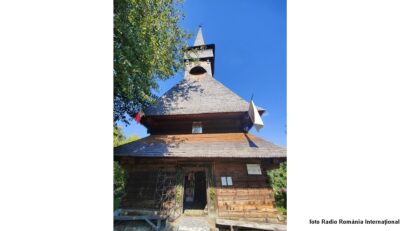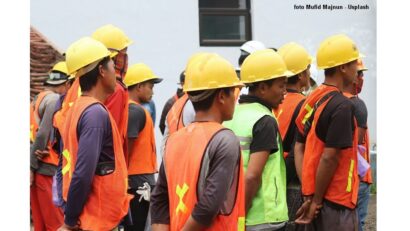A Much Awaited Census
Romania, like all member states of the EU, was supposed to run a census this year for people and households

Roxana Vasile, 07.04.2021, 13:16
Romania, like all member states of the EU, was supposed to run a census this year for people and households. However, this once in a decade event had to be postponed because of the coronavirus health crisis, being scheduled for 2022, but in March a simulation was run. Around 50,000 households across the country were selected for a trial census, which is supposed to be a preliminary image of what things would look like next year.
The simulation was explained to us by Catalin Raiu, communications director for the National Institute of Statistics:
“The simulation is more of an obligation, it is done in all EU member states, and tests the reactions of the population to the questionnaire, to the methods that the questionnaire uses, in order to calibrate various tools, in order for the real census tallying up the population properly to run smoothly.”
The National Institute of Statistics, mandated with running the 2022 census, has an impressive record: 150 years of experience, and 12 censuses run since its inception in 1859. This year, however, the census is facing a particular challenge, as Catalin Raiu told us:
“For the first time in Romania, just as in other EU countries, we are facing a challenge: the census has to be digital, for the first time in Romania we went paperless, and we have two digital processes that replace the notorious paper form which people had to fill in while talking to the census taker. In this process, we have a stage of self-review, in which people, both in the trial and in the real one, will receive a link to a questionnaire where they can self-review, filling in the required data. The second stage is a face to face interview, also based on a digital instrument, this time a tablet. In other words, the census taker visits people at home and notes their answers on a tablet. The data, introduced by people themselves or by the census taker, are moved directly to a database, and are further processed.”
The trial census in March was meant to test the tools available for further statistical work, but the real census next year is meant to answer a very important question. The question is how many people are left in the country, down to the smallest locality. NIS communication director Catalin Raiu clarified a few things regarding the Romanians in the diaspora:
“A census, by definition, not only here, but in other places too, records the resident population, meaning the population that is found on the territory of a state and means to remain within the borders of that territory for a period of 12 months. This is the Eurostat methodology, the EU methodology, and cannot be changed. Therefore, as a result of this census, we will find out what resident population, irrespective of citizenship, irrespective of ethnicity, Romania has on its territory. Right now, the NIS estimates the stock of Romanians outside the borders of the country to be 3.3 — 3.4 million people. On the occasion of the census, which, as I said, takes place almost simultaneously, and based on an identical methodology at the level of the European Union, Romania finds out how many Romanians are in the Unions member states through the census run in each country there. In other words, we know how many Romanians are outside the borders of the country to the extent that we cooperate, collaborate, and receive information from the national institutes of statistics in the respective countries.”
As a result of the questions in next years census, referring to education, occupation, income, religion, ethnicity, homes people live in, or the furnishings at home, the profile of the citizen residing in Romania will be drawn in detail. The purpose is to offer essential quality information for social and economic public policies, for the sustainable development of communities and cities, for the academic environment, and for business people. Here is Catalin Raiu:
“The census is a social and demographic snapshot of the population. These are the stakes — to know what the population on the territory of a country looks like, with indicators that go from job training, up to standards of living, the well-being of a professional category, and so on. There are more indicators, shall we call them more sensitive or very interesting from the perspective of some public policies financing, including by the EU, for instance, in terms of the ethnic belonging of people, there are very relevant indicators strictly in a national sense, such as religious affiliation. And here I have to tell you that one of our strategies aims precisely at an enhanced partnership with members of ethnic minorities and those of religious denominations, because they, by definition, are organizations directly interested in maximizing the number of members on the occasion of the census. Basically, to provide a very precise example, the financing of religious denominations in Romania for the ten years after the census is done on the basis of percentages resulting from the census. In other words, each religious denomination will be very interested, or we will have to create this wish on their side, for the number of members to be as close to reality as possible. Ill give you one example. The Rroma minority in Romania is greatly dissatisfied with the fact that, in previous censuses, the official number of Rroma was one that did not correspond to reality, and, of course, it is possible that things stand as such, but we, starting even early last year, had a very close dialog with public authorities that deal with public policies in the life of the Rroma, or with NGOs, to convince them to convince, in their turn, the members of their community that this very truthful declaration of the ethnicity of each person contributes directly to the financing that these communities receive for the following ten years. So it is not an issue that would approximate reality, or serve a strictly scientific purpose, but one with concrete effects in terms of public policy, of financing and funding for the next ten years with national, European, or extra-European money, such as from the World Bank.”
Next year, between March 14 and May 15, the second stage of self-review will take place, followed by the stage, between May 16 and July 17, of the face to face census, by home visit by a census taker, under healthy conditions, hopefully more relaxed than at present.
The first partial results will be published in late 2022. The final ones, both in Romania and in all EU states, will be known at the end of 2023.






























